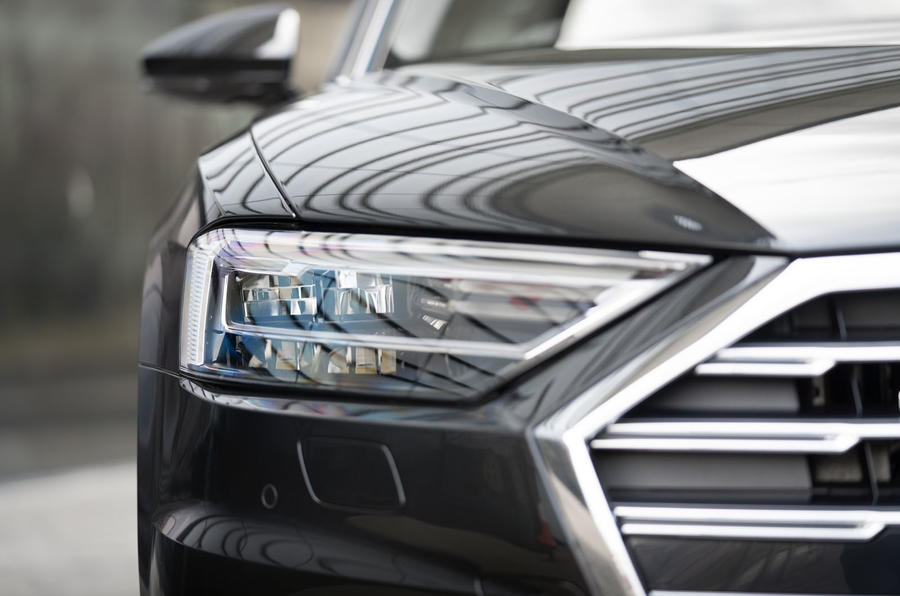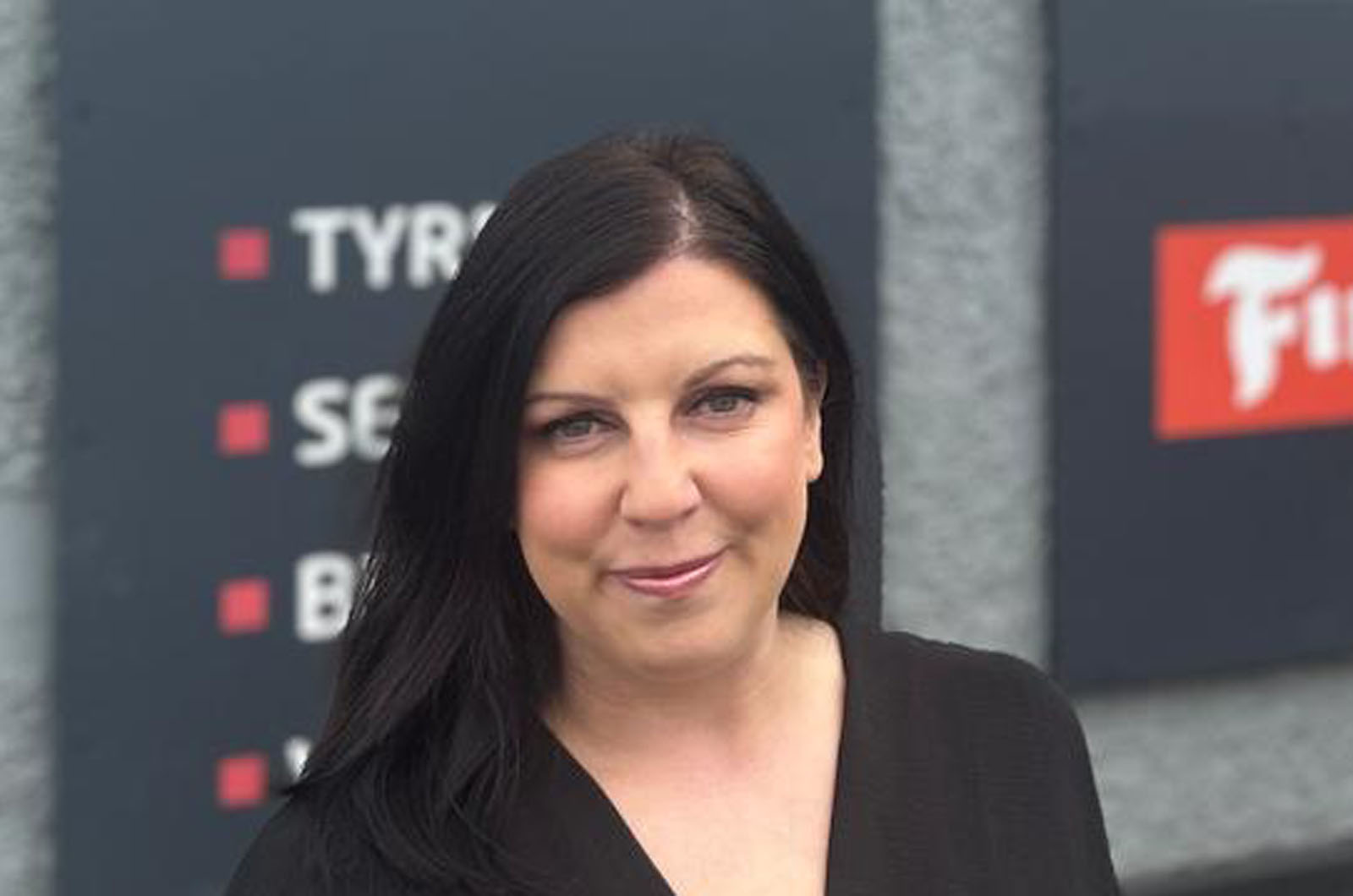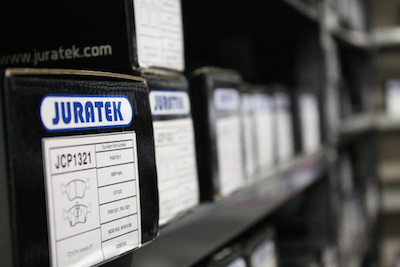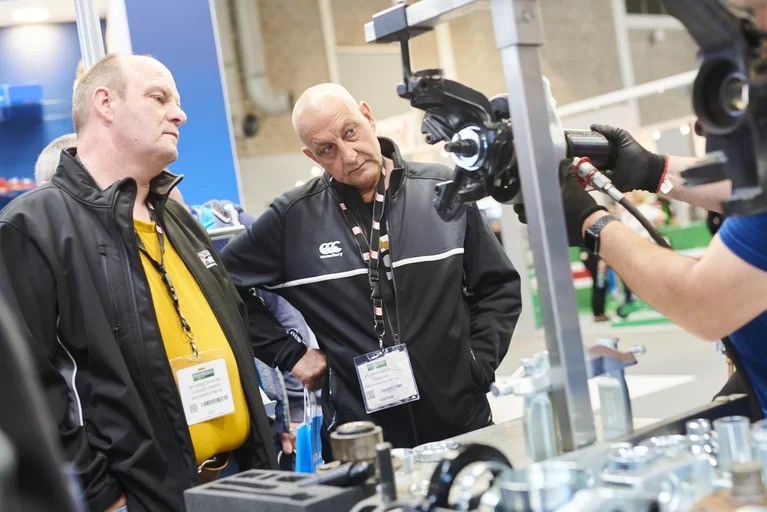The aftermarket rumour mill can be damn accurate when it wants to be. Murmurs of ECP’s sale to LKQ surfaced long before the news was made public, and details coming through the grapevine were almost bang on the money.

Increasing market pressures have seen the mill turn its attention to a number of companies in recent months, but perhaps none more so than Klarius. It’s got six weeks to live and it’s trying to save the sinking ship of QH, we heard.
Thankfully, Klarius boss Tony Wilson is keen to put the rumours to bed. On the outside, at least, his thoughts are positive: “There are more rumours about us than is healthy,†he says. “But every one of them makes me smile because it means someone is spending a lot of time spreading gossip instead of getting on with their job.
“From the rumours I’ve seen so far I’ve been an arms dealer and Mafia front. I also never said we were opening a depot in the Middle East, so that one came out of the blue.â€
Arms dealing aside, Wilson laughs when he hears his company has six weeks left to live: “At least I can book my holidays now. That’s handy,†he chuckles.
It’s not all rosy, however, and there are changes happening to Klarius. Wilson confirms the company is going through a period of restructuring, beginning with its banking procedure: “We are going through re-banking, and we’re changing our banking partners at the moment which is all going very well. So it’s hardly six weeks before we die, in fact it’s quite the opposite.
“In six weeks time we will have substantially stronger banking partners to help us with some of the acquisitions we want to do. That will give us a lot more financial flexibility, both in terms of business today and growth.â€
Re-banking should be completed by the time CAT readers receive this issue. It should also put Klarius in a stronger position to tackle the changing market. Wilson admits the landscape is tough at the moment: “The UK market is down significantly as a total number. We’ve had a substantial shift as a result of fuel prices where we’ve seen people using their vehicles a lot less. We’ve seen a shift with people skipping service levels on their vehicles.
“On top of that we’ve had a very mild winter with upwards of 30 percent reduction in crash repair business. We are essentially a small island that is mature in this market; all of those influences have come to bear over the last twelve months.â€
One of those influences must be the increasing influence of the buying groups and the superfactors. Wilson believes the days of the independent factor are drawing to a close: “If we look at the growth of the factor, the buying group and the strategic alliances that are taking place with factors, the independent parts supplier operating on its own is almost non-existent now.
“The buying groups are finding that they can spend their money in one lump, and they’re looking to do that in the East. A lot of those products are coming into the UK as a result of the buying groups.â€
Wilson is quick to point out that although there is some questionable product coming from the East, there is also a lot of good manufacturing. As always, quality control is paramount: “There’s the issue of looking at who you’re dealing with in the East. There’s a significant switch on the buying groups in the market only doing business with reputable manufacturers. The preference is with manufacturers who are European based who can spend a lot of time taking the cost out of the supply chain.â€
Klarius itself manufacturers around 60 percent of its own product, though Wilson is keen to grow that figure: “I would like to see us getting to the
80 percent manufactured product mix by 2014, because a major acquisition can bump that number up substantially.
“There always will be a proportion of the product that we don’t manufacture. We have the distribution platform that means we can benefit almost by having free distribution for some of the factored product that we bring on board.â€
Acquisitions could well be on the cards then, but losses are equally likely. “We stopped doing brake manufacturing recently,†says Wilson. “We had a manufacturing plant in Italy that really was not economically viable. That’s because it was purchasing its castings in from China and then it was precision machining the product in Italy before distribution. That doesn’t work in reality. It doesn’t mean we have exited brake disk manufacturing, we’ve mothballed the plant and we are distributing a factored product.â€
A shrinking market?

For factors at all levels margins on commonly-sold products are decreasing. It’s something Wilson sees as being inevitable: “What the current economic market has shown is that there is a cost versus price scenario. That shows that once you start looking at carrying a full parade of parts and once you look at the cost of trade in terms of letters of credit and paying for product that is in progress or on the water, the price differential between those products is quite marginal.â€
In terms of market growth, Klarius is keeping a keen eye on rotating electrics: “Our water pump output from the North Wales factory is four times the volume it was when we purchased the company,†says Wilson. “It’s been a massive success story for us.â€
“Stop-start technology puts a great strain on starter motors. You used to start your engine and run it just once. The
reality is now that on a single journey your engine can start
50 times or more.â€
Emissions, naturally, is where QH and Klarius is going to make its real money. With what Wilson estimates is a 55 percent market share, Klarius recently made the move to handling all of its emissions product directly. There can be no better way to ensure quality than doing it yourself.
Still, Wilson is already seeing the market shrinking substantially: “I don’t see every factor carrying emissions parts in the future, it takes a lot of shelf space and there’s a lot of parts. It’s difficult to stock, and it doesn’t give the margin that some other areas can do from having smaller shelf space.â€
We’re increasingly seeing factors making those decisions, favouring one market over another in search for the greatest profit potential from the minimal investment.
However, Wilson reckons that for those emissions suppliers who can afford to stick around in the market, the sector will become one
of the profitable niches that sees suppliers – and their customers – do well.
For those worried about the supply of QH and Klarius products to the market, Wilson has a simple explanation: “Our banking position and our change in banking has put a significant strain on the company in terms of funding growth everywhere else. That in itself has led to some shortages in supply out to our customer base.
“Trying to get a perfect balance has caused us to cock up on a couple of occasions, and that has hurt some of our customers.
“I don’t want to paint a black picture of our supply chain because that’s just not the case. But say if we had ten product lines going out to a customer, I could guarantee that one or two of those lines would be under stretch and they won’t necessarily be the same product lines in every case.â€
There is hope though – Wilson believes that re-banking will put Klarius in a stronger position for the rest of the year: “Our supply rate will vary, but if it was taken as an average we are probably in the high 80s, and I want to be in the high 90s.
Wilson is optimistic that even the UK market, given time and investment, can begin to recover: “The shape of the market is getting better. If we went back two and a half years ago when we acquired QH, there is less debt in the company now than before we made that purchase. The reality is that two years on our debt is down to single figures and it’s a very positive outlook. What we do is profitable.â€

It may be profitable now, but the process has taken considerable effort: “QH has taken a lot of time and money in turning the business around, it needed significant investment in the infrastructure of the business, and it hadn’t developed any new products. It needed its ranges bringing up to speed which is always a costly exercise. We also needed to improve its European distribution.
“The UK operation needed a change in terms of the stock holding it was carrying. Overall we needed to work hard to get a synergy going between the two companies.â€
When the same rumours keep coming round it is understandably frustrating. One of the big bones of contention with Klarius taking control of
QH was the contract with distribution company Caterpillar Logistics: “When we purchased QH the old owners had entered into a ten year contract with Caterpillar Logistics. I have to say it was a horrendously stupid contract. It was expensive and nobody in their right mind would have signed it.
“There is still five years to run on it. However, let’s be realistic. This wasn’t a surprise to us, and we factored it all in before we bought the company.
“We knew all the details, and there’s no surprises in it to us so why so many people keep quoting the figures to us like it’s something we weren’t aware of I don’t know.â€
Wilson does lay one major aftermarket rumour to bed. Would he get rid of QH just to get out of the contract? “I wouldn’t,†he states. “I don’t think that would be right.â€
recovery and the future
When the market does recover, Klarius won’t be standing still. Wilson has already set his sights on the next target. As with so many multi-national suppliers, the way to grow in the new aftermarket is to go European: “We’re currently running with 75 percent of our sales coming from outside the UK. We were down three percent in Q1 and when times are tough it forces you to look at everything in your company.
“In mainland Europe, where we have a very small market percentage, we’ve got an awful lot more to go at.â€
Klarius might find itself scrapping for percentage points with so many other suppliers, however. Wilson isn’t the only one to have seen gold in the European hills.
If you needed proof that Klarius is ready to grow, look no further than a recent article in The Sunday Times placing Klarius sixth on a list of the top ten manufacturers with the fastest growing international sales. “It is wonderful for employees and people in the company to see recognition like this. Are we going to sell more exhausts this week because of this list? The answer is: no. But it’s lovely to see people recognised for what they are doing.â€
“I’m not sure where the rumour mill will come out on this one,†jokes Wilson, “but we’ll probably find that I own The Sunday Times as well.â€
You heard it here first, folks.










Go to comments